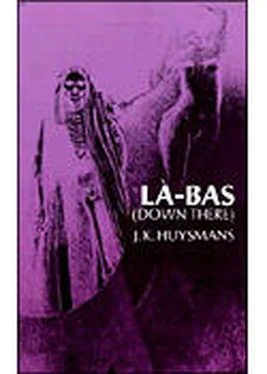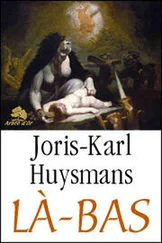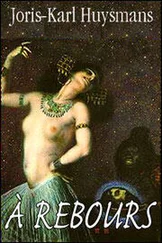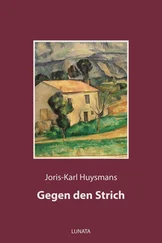Joris-Karl Huysmans - Down There (Là-Bas)
Здесь есть возможность читать онлайн «Joris-Karl Huysmans - Down There (Là-Bas)» весь текст электронной книги совершенно бесплатно (целиком полную версию без сокращений). В некоторых случаях можно слушать аудио, скачать через торрент в формате fb2 и присутствует краткое содержание. Жанр: Классическая проза, на английском языке. Описание произведения, (предисловие) а так же отзывы посетителей доступны на портале библиотеки ЛибКат.
- Название:Down There (Là-Bas)
- Автор:
- Жанр:
- Год:неизвестен
- ISBN:нет данных
- Рейтинг книги:3 / 5. Голосов: 1
-
Избранное:Добавить в избранное
- Отзывы:
-
Ваша оценка:
- 60
- 1
- 2
- 3
- 4
- 5
Down There (Là-Bas): краткое содержание, описание и аннотация
Предлагаем к чтению аннотацию, описание, краткое содержание или предисловие (зависит от того, что написал сам автор книги «Down There (Là-Bas)»). Если вы не нашли необходимую информацию о книге — напишите в комментариях, мы постараемся отыскать её.
Down There (Là-Bas) — читать онлайн бесплатно полную книгу (весь текст) целиком
Ниже представлен текст книги, разбитый по страницам. Система сохранения места последней прочитанной страницы, позволяет с удобством читать онлайн бесплатно книгу «Down There (Là-Bas)», без необходимости каждый раз заново искать на чём Вы остановились. Поставьте закладку, и сможете в любой момент перейти на страницу, на которой закончили чтение.
Интервал:
Закладка:
" But Dr. Johannès does not cure all sufferers, without discrimination?"
"No. He will not meddle with any ailments which are not the result of spells. He says he can do nothing with natural ills, which are the province of the physician. He is a specialist in Satanic affections. He has most to do with the possessed whose neuroses have proved obdurate to hydrotherapeutic treatment."
"What does he do with the precious stones you mentioned?"
"First, before answering your question, I must explain the significance and virtue of these stones. I shall be telling you nothing new when I say that Aristotle, Pliny, all the sages of antiquity, attributed medical and divine virtues to them. According to the pagans, agate and carnelian stimulate, topaz consoles, jasper cures languor, hyacinth drives away insomnia, turquoise prevents falls or lightens the shock, amethyst combats drunkenness.
"Catholic symbolism, in its turn, takes over the precious stones and sees in them emblems of the Christian virtues. Then, sapphire represents the lofty aspirations of the soul, chalcedony charity, sard and onyx candor, beryl allegorizes theological science, hyacinthe humility, while the ruby appeases wrath, and emerald 'lapidifies' incorruptible faith.
"Now in magic," Des Hermies rose and took from a shelf a very small volume bound like a prayer book. He showed Durtal the title: Natural magic, or: The secrets and miracles of nature, in four volumes, by Giambattista Porta of Naples. Paris. Nicolas Bonjour, rue Neuve Nostre Dame at the sign Saint Nicolas . 1584.
"Natural magic," said Des Hermies, "which was merely the medicine of the time, ascribes a new meaning to gems. Listen to this. After first celebrating an unknown stone, the Alectorius, which renders its possessor invincible if it has been taken out of the stomach of a cock caponized four years before or if it has been ripped out of the ventricle of a hen, Porta informs us that chalcedony wins law suits, that carnelian stops bloody flux 'and is exceeding useful to women who are sick of their flower,' that hyacinth protects against lightning and keeps away pestilence and poison, that topaz quells 'lunatic' passions, that turquoise is of advantage against melancholy, quartan fever, and heart failure. He attests finally that sapphire preserves courage and keeps the members vigorous, while emerald, hung about one's neck, keeps away Saint John's evil and breaks when the wearer is unchaste.
"You see, antique philosophy, mediæval Christianity, and sixteenth century magic do not agree on the specific virtues of every stone. Almost in every case the significations, more or less far-fetched, differ. Dr. Johannès has revised these beliefs, adopted and rejected great numbers of them, finally he has, on his own authority, admitted new acceptations. According to him, amethyst does cure drunkenness; but moral drunkenness, pride; ruby relieves sex pressure; beryl fortifies the will; sapphire elevates the thoughts and turns them toward God.
"In brief, he believes that every stone corresponds to a species of malady, and also to a class of sins; and he affirms that when we have chemically got possession of the active principle of gems we shall have not only antidotes but preventatives. While waiting for this chimerical dream to be realized and for our medicine to become the mock of lapidary chemists, he uses precious stones to formulate diagnoses of illnesses produced by sorcery."
"How?"
"He claims that when such or such a stone is placed in the hand or on the affected part of the bewitched a fluid escapes from the stone into his hands, and that by examining this fluid he can tell what is the matter. In this connection he told me that a woman whom he did not know came to him one day to consult him about a malady, pronounced incurable, from which she had suffered since childhood. He could not get any precise answers to his questions. He saw no signs of venefice. After trying out his whole array of stones he placed in her hand lapis lazuli, which, he says, corresponds to the sin of incest. He examined the stone.
"'Your malady,' he said, 'is the consequence of an act of incest.'
"'Well,' she said, 'I did not come here to confessional,' but she finally admitted that her father had violated her before she attained the age of puberty.
"That, of course, is against reason and contrary to all accepted ideas, but there is no getting around the fact that this priest cures patients whom we physicians have given up for lost."
"Such as the only astrologer Paris now can boast, the astounding Gévingey, who would have been dead without his aid. I wonder how Gévingey came to cast the Empress Eugenie's horoscope."
"Oh, I told you. Under the Empire the Tuileries was a hotbed of magic. Home, the American, was revered as the equal of a god. In addition to spiritualistic séances he evoked demons at court. One evocation had fatal consequences. A certain marquis, whose wife had died, implored Home to let him see her again. Home took him to a room, put him in bed, and left him. What ensued? What dreadful phantom rose from the tomb? Was the story of Ligeia re-enacted? At any rate, the marquis was found dead at the foot of the bed. This story has recently been reported by Le Figaro from unimpeachable documents.
"You see it won't do to play with the world spirits of Evil. I used to know a rich bachelor who had a mania for the occult sciences. He was president of a theosophic society and he even wrote a little book on the esoteric doctrine, in the Isis series. Well, he could not, like the Péladan and Papus tribe, be content with knowing nothing, so he went to Scotland, where Diabolism is rampant. There he got in touch with the man who, if you stake him, will initiate you into the Satanic arcana. My friend made the experiment. Did he see him whom Bulwer Lytton in Zanoni calls 'the dweller of the threshold'? I don't know, but certain it is that he fainted from horror and returned to France exhausted, half dead."
"Evidently all is not rosy in that line of work," said Durtal. "But it is only spirits of Evil that can be evoked?"
"Do you suppose that the Angels, who, of earth, obey only the saints, would ever consent to take orders from the first comer?"
"But there must be an intermediate order of angels, who are neither celestial nor infernal, who, for instance, commit the well-known asininities in the spiritist séances."
"A priest told me one day that the neuter larvæ inhabit an invisible, neutral territory, something like a little island, which is beseiged on all sides by the good and evil spirits. The larvæ cannot long hold out and are soon forced into one or the other camp. Now, because it is these larvæ they evoke, the occultists, who cannot, of course, draw down the angels, always get the ones who have joined the party of Evil, so unconsciously and probably involuntarily the spiritist is always diabolizing."
"Yes, and if one admits the disgusting idea that an imbecile medium can bring back the dead, one must, in reason, recognize the stamp of Satan on these practises."
"However viewed, Spiritism is an abomination."
"So you don't believe in theurgy, white magic?"
"It's a joke. Only a Rosicrucian who wants to hide his more repulsive essays at black magic ever hints at such a thing. No one dare confess that he satanizes. The Church, not duped by these hair-splitting distinctions, condemns black and white magic indifferently."
"Well," said Durtal, lighting a cigarette, after a silence, "this is a better topic of conversation than politics or the races, but where does it get us? Half of these doctrines are absurd, the other half so mysterious as to produce only bewilderment. Shall we grant Satanism? Well, gross as it is, it seems a sure thing. And if it is, and one is consistent, one must also grant Catholicism-for Buddhism and the like are not big enough to be substituted for the religion of Christ."
Читать дальшеИнтервал:
Закладка:
Похожие книги на «Down There (Là-Bas)»
Представляем Вашему вниманию похожие книги на «Down There (Là-Bas)» списком для выбора. Мы отобрали схожую по названию и смыслу литературу в надежде предоставить читателям больше вариантов отыскать новые, интересные, ещё непрочитанные произведения.
Обсуждение, отзывы о книге «Down There (Là-Bas)» и просто собственные мнения читателей. Оставьте ваши комментарии, напишите, что Вы думаете о произведении, его смысле или главных героях. Укажите что конкретно понравилось, а что нет, и почему Вы так считаете.












